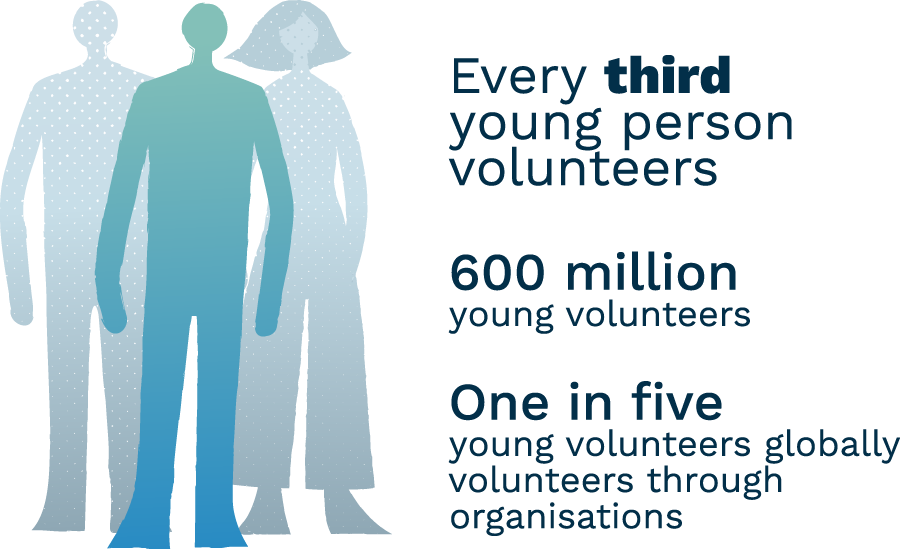Volunteerism is often the first experience of civic engagement for young people.
In many instances, volunteerism provides entry points for young people to determine their own priorities, set their own agendas and engage with young people or other actors. Volunteering may be a catalyst, particularly for young people, to participate in the political realm. It is particularly important for countries with younger populations and where rapid social change is leading to migration, loss of traditional structures and unemployment.
Apart from altruism and hope for a better world, young people are driven by a multitude of reasons to volunteer including wanting to gain skills for future employment, to keep busy or for leisure only. At the same time, young people report challenges and issues with volunteering in their communities and societies.


